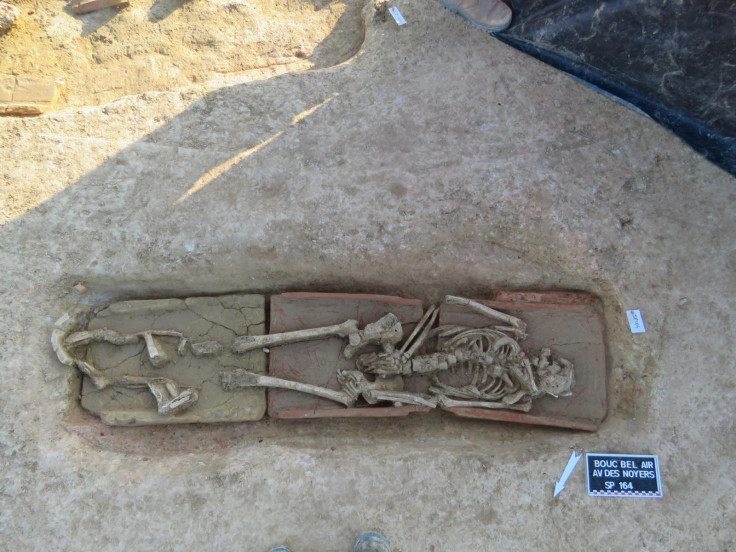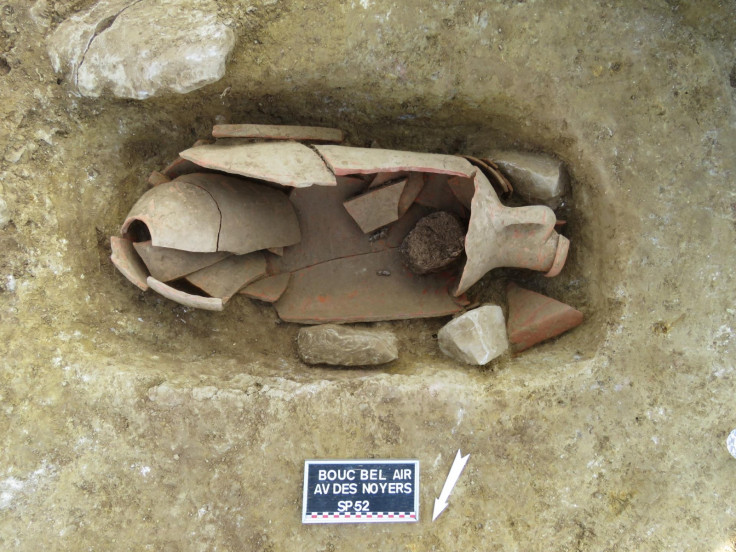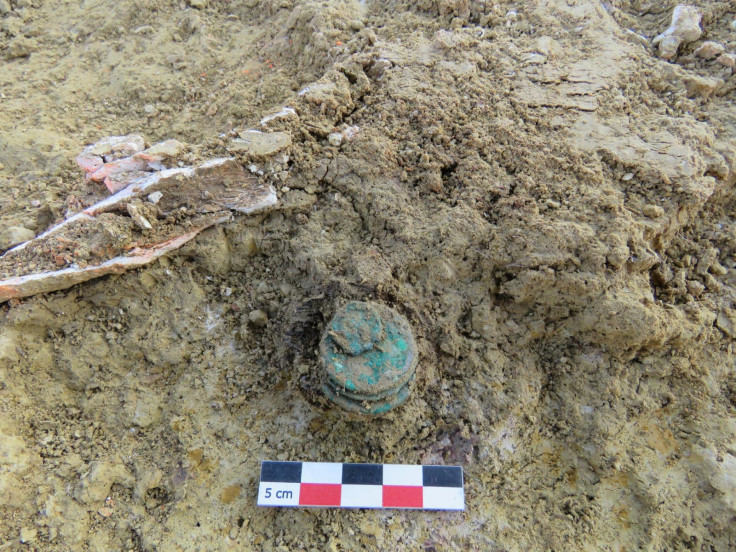Vast ancient necropolis in southern France reveals the path to Christianity was slow
More than 300 tombs were recovered in the town of the Bouc-Bel-Air.
A necropolis from the time of the late Antiquity has been discovered in southern France. More than 300 tombs have been unearthed, and the objects recovered suggest that the path towards Christianity was gradual in the region.
Before construction work could take place to build houses, the French state had mandated archaeological surveys on the land, located in the town of the Bouc-Bel-Air.
A team from the French National Institute for Preventive Archaeological Research (INRAP) began excavating the 21,900 metre square area, quickly finding fossils from the Neolithic Era (from approx. 10,000BC to 3,000BC).
Small pits in the ground were holding objects including ceramic remains and rudimentary tools.
A row of holes in the ground indicates the location of where a wooden structure would have been standing, although it is not known what its purpose was.
Antique necropolis
However, the site was hiding many more secrets. The archaeologists also discovered that the land had later been used as a necropolis, just before medieval times. A total of 315 tombs were identified, with a great variety of funerary practices documented at the site.

Most of the tombs had simply been covered with tiles but others held the remains of people who had also been placed in wooden or lead coffins. A number of amphora burials – wherein remains of infants or fetuses are put in large jars – were also recovered.
Within some of the tombs, the archaeologists discovered objects that suggest the persistence of pagan rites, even though Christianity was becoming more prevalent.

The archaeologists identified offerings made to the deceased such as lamps, coins and small vases. These ancestral practices slowly disappeared as burials became more Christian. However, their persistence here, and the great variety of burial types, suggest that communities were still attached to a number of pagan traditions.
Thus, this discovery highlights that changes to burial practices were gradual and that the move towards Christianity was progressive. Future research will focus on analysing the skeletal remains found in some of the tombs to gather more details about the history of these people and what their health and diets were like.

© Copyright IBTimes 2025. All rights reserved.






















